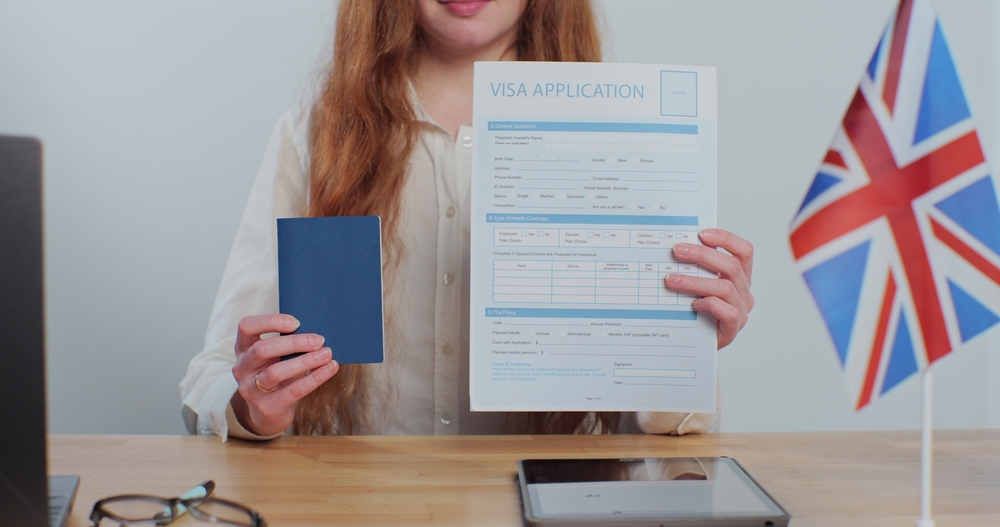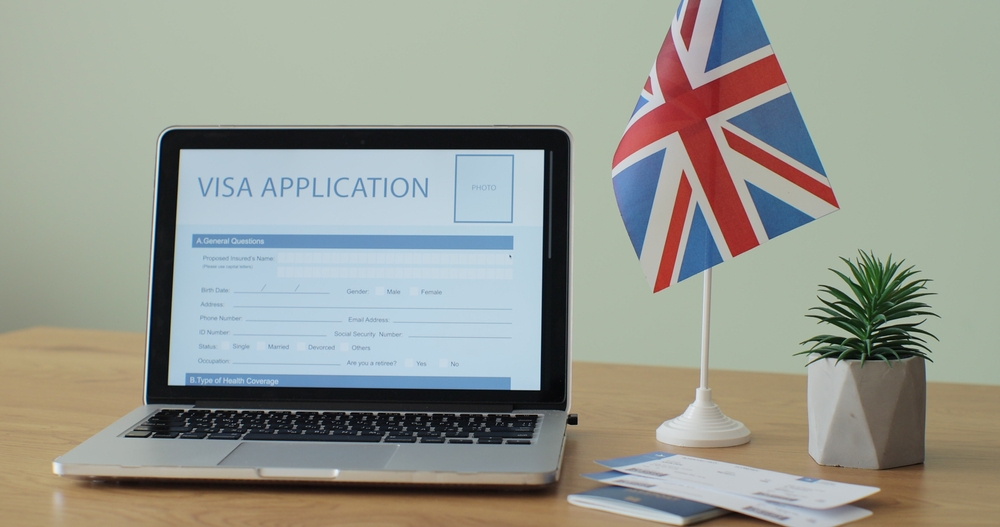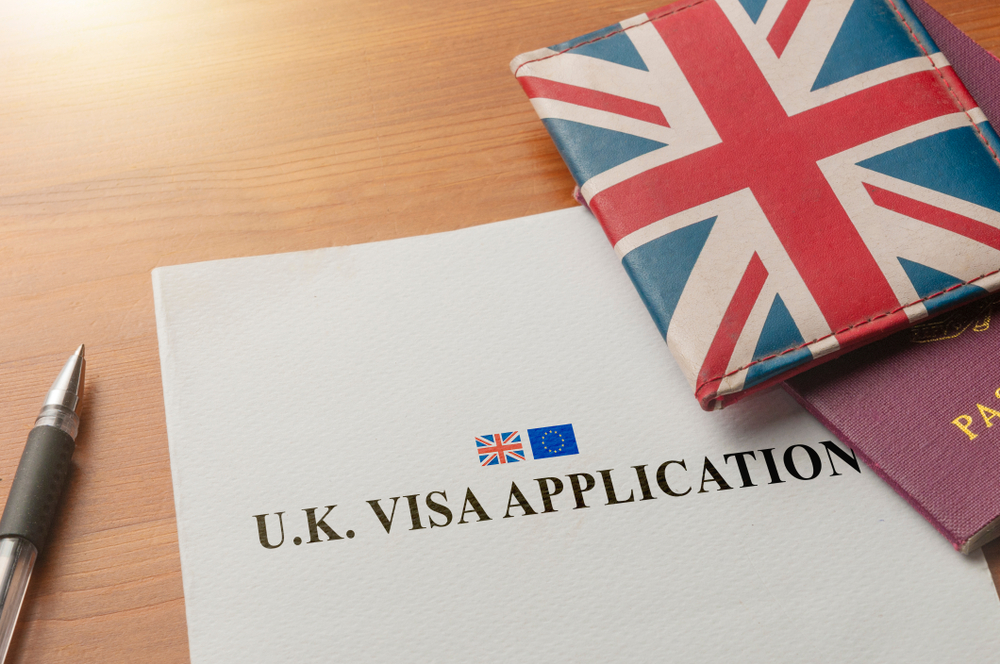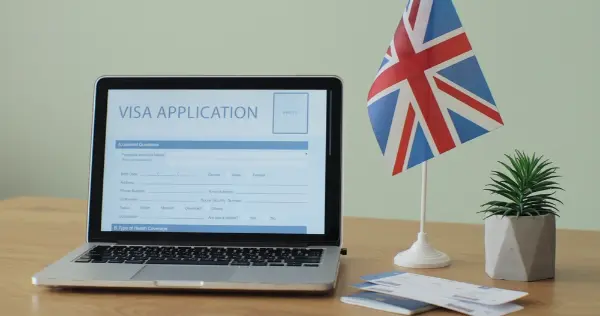In-Person vs Virtual UK Visa Appointments: Which is More Better?
When applying for a UK visa, one of the most important steps is choosing the right type of appointment for your situation. The UK visa application process can seem difficult at first, but understanding your options can make it much more manageable. In recent years, the UK government has introduced virtual visa appointments alongside traditional in-person appointments, giving applicants more flexibility in how they submit their applications.
Choosing between an in-person or virtual appointment can significantly impact the efficiency and success of your visa application. Each type of appointment has its own advantages and disadvantages, and it’s crucial to consider factors such as your location, personal preferences, and the urgency of your application when making a decision.
In this article, we’ll take a closer look at both in-person and virtual UK visa appointments, comparing their pros and cons to help you determine which option is more better for your specific situation. By understanding the differences between these two appointment types, you’ll be better equipped to navigate the UK visa application process and increase your chances of a successful outcome.
Read: UK Visa Rejection Triggers: 7 Sure Ways to Get Denied
In-Person UK Visa Appointments
If you’re considering an in-person UK visa appointment, it’s essential to understand what the process entails. When you opt for an in-person appointment, you’ll need to visit a designated UK visa application center to submit your application, provide biometric information (such as fingerprints and photographs), and attend an interview with a visa official. One of the primary advantages of in-person appointments is the opportunity for face-to-face interaction with visa officials. This personal touch can be invaluable for those who prefer direct communication and feel more comfortable expressing themselves in person. During your appointment, you’ll have the chance to ask questions, clarify any doubts, and provide additional context for your application if needed.
One of the primary advantages of in-person appointments is the opportunity for face-to-face interaction with visa officials. This personal touch can be invaluable for those who prefer direct communication and feel more comfortable expressing themselves in person. During your appointment, you’ll have the chance to ask questions, clarify any doubts, and provide additional context for your application if needed.
Another benefit of in-person appointments is the immediate submission of your biometric information and supporting documents. This means that your application will be processed as soon as you complete your appointment, reducing the risk of delays caused by missing or incorrect documentation.
However, in-person appointments also have some drawbacks to consider. One of the most significant disadvantages is the travel time and expenses involved in reaching the visa application center. Depending on your location, you may need to travel a considerable distance, which can be time-consuming and costly, especially if you need to arrange for accommodation or take time off work.
Moreover, in-person appointment availability can be limited, particularly in high-demand periods or at smaller visa application centers. This may result in longer wait times for an available slot, which could delay your application process. Additionally, once you arrive at the visa application center, you may face further wait times before your appointment begins, which can be frustrating and time-consuming.
Despite these potential drawbacks, in-person appointments remain a popular choice for many UK visa applicants due to the personal nature of the process and the peace of mind that comes with submitting your application directly to a visa official. In the next section, we’ll explore the alternative option of virtual UK visa appointments and compare their efficiency to in-person appointments.
Read: 8 UK Workplace Etiquette Mistakes That Could Cost You
Virtual UK Visa Appointments
In response to the growing demand for more flexible and accessible visa application options, the UK government has introduced virtual visa appointments. This innovative approach allows applicants to submit their applications and attend interviews remotely, using video conferencing technology. The virtual appointment process is relatively straightforward. Once you’ve completed your online application and paid the visa fee, you’ll be able to schedule a virtual appointment at a time that suits you. During the appointment, you’ll connect with a visa official via a secure video link, where you’ll be asked to confirm your identity, provide any necessary information, and answer questions about your application.
The virtual appointment process is relatively straightforward. Once you’ve completed your online application and paid the visa fee, you’ll be able to schedule a virtual appointment at a time that suits you. During the appointment, you’ll connect with a visa official via a secure video link, where you’ll be asked to confirm your identity, provide any necessary information, and answer questions about your application.
One of the most significant advantages of virtual appointments is the convenience and flexibility they offer. With no need to travel to a physical visa application center, you can attend your appointment from the comfort of your own home or office, saving both time and money on transportation and accommodation. This is particularly beneficial for applicants who live far from their nearest visa application center or have mobility issues that make travel difficult.
Another advantage of virtual appointments is the wider availability of slots compared to in-person appointments. As virtual appointments don’t require physical space at a visa application center, more appointments can be offered, reducing wait times and allowing for greater flexibility in scheduling.
Furthermore, virtual appointments can help reduce the risk of exposure to health threats, such as COVID-19. By eliminating the need for in-person contact, virtual appointments provide a safer alternative for both applicants and visa officials during times of public health concern.
However, virtual appointments also have some potential drawbacks. One of the main disadvantages is the reliance on technology and internet connectivity. Applicants will need access to a stable internet connection and a device capable of video conferencing, which may not be available to everyone. Additionally, technical issues such as poor video or audio quality, or connection disruptions, could impact the quality of the appointment experience.
Another disadvantage of virtual appointments is the need to submit biometric information and supporting documents separately. Unlike in-person appointments, where these can be provided during the appointment itself, virtual appointment applicants will need to arrange for the separate submission of these materials, which could potentially delay the processing of their application.
Despite these potential drawbacks, virtual UK visa appointments offer a convenient and efficient alternative to traditional in-person appointments, particularly for those who value flexibility and accessibility. In the next section, we’ll compare the efficiency of in-person and virtual appointments across various factors to help you determine which option is best suited to your needs.
Read: 6 Visa Pitfalls That Can Derail Your UK Dreams
Comparison of Efficiency
When deciding between in-person and virtual UK visa appointments, efficiency is a key factor to consider. Let’s compare the two appointment types across several aspects to determine which one is more efficient. Time savings: In-person appointments require travel time to and from the visa application center, which can be significant depending on your location. In contrast, virtual appointments eliminate the need for travel, saving you valuable time that can be spent on other aspects of your visa application process.
Time savings: In-person appointments require travel time to and from the visa application center, which can be significant depending on your location. In contrast, virtual appointments eliminate the need for travel, saving you valuable time that can be spent on other aspects of your visa application process.
Cost savings: Attending an in-person appointment can involve various travel expenses, such as transportation costs, accommodation, and meals. These costs can add up quickly, especially if you need to travel a long distance or stay overnight. On the other hand, virtual appointments don’t require any additional costs beyond the standard visa application fee, making them a more cost-effective option for many applicants.
Application processing times: The processing times for UK visa applications can vary depending on various factors, such as the type of visa, the volume of applications, and the completeness of your application. However, there is generally no significant difference in processing times between in-person and virtual appointments. Both appointment types are subject to the same standard processing timeframes set by the UK government.
Success rates: It’s important to note that the success rate of your UK visa application depends on your individual circumstances and the strength of your application, rather than the type of appointment you choose. There is no evidence to suggest that in-person or virtual appointments have a higher or lower success rate. The key to a successful application is ensuring that you meet all the necessary requirements and provide complete and accurate information, regardless of the appointment type.
Factors to Consider When Choosing an Appointment Type
When deciding between an in-person or virtual UK visa appointment, there are several factors to consider beyond just efficiency. These include:
Personal preference and comfort level with technology: If you’re comfortable using technology and have access to a reliable internet connection, a virtual appointment may be a good fit for you. However, if you prefer face-to-face interaction or are less confident with technology, an in-person appointment may be more appealing.
Location and accessibility of visa application centers: If you live close to a visa application center and can easily travel there, an in-person appointment may be more convenient. However, if you live far from a center or have mobility issues, a virtual appointment may be a better choice.
Urgency of the visa application: If your visa application is urgent, you may want to consider an in-person appointment to ensure that your biometric information and supporting documents are submitted immediately. However, if you have more flexibility in your timeline, a virtual appointment may be a suitable option.
Individual circumstances: Your personal circumstances, such as health concerns or travel restrictions, may also influence your choice of appointment type. For example, during the COVID-19 pandemic, virtual appointments became an increasingly popular choice due to health and safety concerns.
Ultimately, the choice between an in-person or virtual UK visa appointment depends on your individual needs and preferences. By carefully considering the factors outlined above and weighing the pros and cons of each appointment type, you can make an informed decision that best suits your situation.


